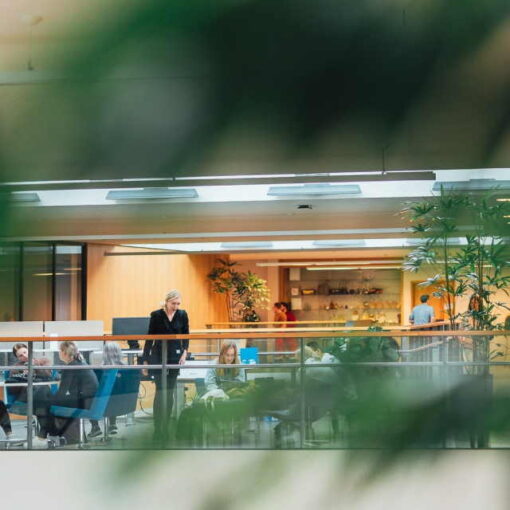“When I started these computer lessons, I was computer illiterate but now I can type and properly keep records of my business and after these lessons I will teach others.”
The SmartVille project (Developing Sustainable and Entrepreneurial Villages through Educational Living Labs in Namibia and Zambia) not only aims to develop new innovative approaches and initiatives for entrepreneurship education in Zambian and Namibian universities and in the chosen underserved communities but also improves the computer literacy skills through the establishment of technological learning environments, Living Labs. (LAB 2025)
The SmartVille project seeks to establish four Living Labs—two in Zambia (University of Lusaka and Mulungushi University) and two in Namibia (Namibia University of Science and Technology and the University of Namibia)—with the aim of enhancing access to both formal and informal education for marginalized groups, including women, youth, and persons with disabilities (LAB 2025).
![[Alt text: people working with their laptops around a desk.]](https://blogit.lab.fi/labfocus/wp-content/uploads/sites/8/2025/09/362_2025_SmartVille-Zambia_1-1024x629.jpg)
Namibian and Zambian consortium partners have carefully evaluated and selected the Living Lab sites to empower the residents of the underserved communities. Luanshimba (in Kapiri Mposhi District in the Central Province of Zambia 200 km north of Lusaka, the capital city) was chosen as the site for Mulungushi University after assessing three possible rural communities.
Luanshimba, located in proximity to Mulungushi University campus (about 6 kilometers), had an organized community structure with an active committee collaborating with the Rural Health Centre and the Non-Governmental Organization (NGO) JOICEP, and the availability of a secure building for the Living Lab. The other two sites lacked sufficient infrastructure and security to support the project effectively.
Towards sustainable energy solutions
After selection of the site followed Mulungushi University’s tender procedures to procure and install a solar power system and computers for the Living Lab. The solar system supports United Nation’s (UN) Sustainable Development Goal (SDG) number 7 by providing affordable, reliable, and clean energy, powering computers, lighting, fridges, and phone charging facilities. This aligns with Zambia’s national policies promoting green energy to address power deficits and environmental sustainability.
Needs assessment and designing the informal courses
Interviews with community members identified specific needs, leading Mulungushi University and partner institutions to design interactive, hands-on training programs tailored to the community’s interests. These programs focus on enhancing business skills, including business registration and financial accounting and management, with the goal of enabling participants to effectively register and manage their businesses to improve livelihoods. Community members expressed interest, particularly in learning financial record-keeping for their vegetable farming businesses, demonstrating the program’s relevance to local economic activities.
Training began with basic computer skills, including Microsoft Excel, Word, and internet applications, introducing many participants to computer use for the first time. This foundational knowledge is critical for business record-keeping and communication.
“From the computer lessons I have learnt how to keep records and save information in the computer: Also, to know whether my business is improving or not.”
![[Alt text: twelve persons standing in front of a low building.]](https://blogit.lab.fi/labfocus/wp-content/uploads/sites/8/2025/09/362_2025_SmartVille-Zambia_2-1024x646.jpg)
The program has had a significant positive impact on the Luanshimba community, fostering renewed hope and enthusiasm for business activities. The first cohort enrolled 18 participants (12 males and 6 females), who reported increased confidence and optimism about applying their new skills to register and manage businesses effectively. The community’s active involvement from the outset reflects strong acceptance and commitment to the project’s capacity-building goals. The success of the Luanshimba Educational Living Lab is attributed to the combined efforts of project partners, trainers, community organizers, and participants.
“Computer lessons have helped me to know how to write application letters and poster adverts for my farm business and I am very thankful to the sponsors of the living lab, Mulungushi University and all other institutions which are involved in this work because I thought computers were very difficult to operate but with these lessons, things have been made easier.”
Authors
Mia Ekman works as a Senior Lecturer in the Faculty of Business at LAB University of Applied Sciences. Currently works also as a project manager in the Developing Sustainable and Entrepreneurial Villages through Educational Living Labs in Namibia and Zambia (SmartVille)- project.
Sheila Kafula, MSc, works as a Lecturer in Economics and Social Work Department at the Faculty of the Social Sciences at Mulungushi University and has vast work experience with students and rural communities to facilitate access to improved basic education and health services, including nutritional attainments.
James Mutambo works as a Lecturer and Student Mentor in Agricultural Economics and Agribusiness Department at the Faculty of Agriculture and Natural Resources at Mulungshi University. He holds an MSc in Management, Economics and Consumer Studies in Agricultural Economics and Agribusiness.
Mwelwa Mwape Malunga, PhD, works as the Head of Department and Lecturer in Natural Resources and Environmental Sciences Department at Mulungushi University. He has wide experience working with communities to develop Bee and Honey Value Chains to improve rural household incomes in Zambia.

References
LAB. 2025. Developing Sustainable and Entrepreneurial Villages Through Educational Living Labs in Namibia and Zambia. Project websites. LAB University of Applied Sciences. Cited 15 Sep 2025. Available at https://lab.fi/en/project/developing-sustainable-and-entrepreneurial-villages-through-educational-living-labs-namibia




